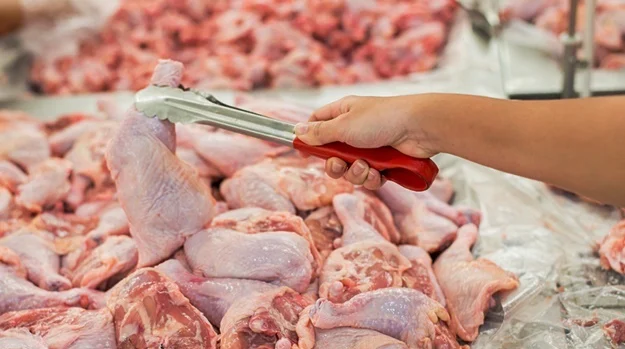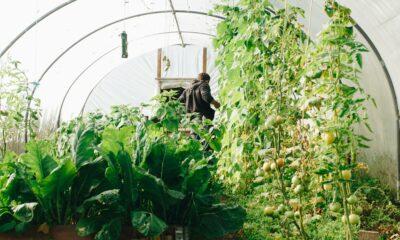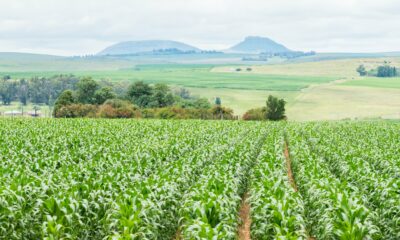News
Chicken Chaos: Paperwork Delays Threaten SA’s Meat Supply and Push Up Prices

Food insecurity grows as meat imports stall at SA’s borders despite digital solutions
In South Africa, where a simple hotdog or a plate of pap and viennas is a staple meal for millions, the cost of meat is not just an economic issue, it’s a matter of survival. And right now, the country is staring down a protein crisis that could ripple through every lunchbox, dinner table and school feeding scheme from the Cape Flats to KwaMashu.
The root of the crisis? Paperwork.
The Border Bottleneck
Meat importer Merlog Foods has sounded the alarm: key meat imports are piling up at ports because South African authorities are still relying on paper-based veterinary certificates, despite the fact that a secure online system is already available and widely used internationally.
Specifically, the issue centres on mechanically deboned meat (MDM) a product South Africa doesn’t produce locally and relies on from Brazil, importing around 19,000 tonnes per month. This meat is used to make popular, low-cost items like polony, viennas, Russians, and braaiwors, foods that fill the plates of working-class families and public school kitchens across the country.
While imports resumed in June following a temporary bird flu ban in May, the first shipments are only expected to land mid-August, and now face delays of 7 to 10 days just waiting for original paper documents, even if they’ve already been cleared digitally.
A System That’s Failing the Poor
Merlog Foods points out that the Border Management Authority (BMA) and the Directorate of Animal Health under the Department of Agriculture already have access to the online platform used to verify health certificates. Yet officials continue to hold up shipments until they physically receive hard copies from Brazil.
The result? Empty shelves. Idle meat processors. Higher prices. And according to Merlog’s estimates, over 100 million meals are lost per week of delay.
“These are not luxury goods. They’re essentials for millions,” said one food producer based in the Eastern Cape. “When prices rise or supply disappears, it’s the poorest who suffer first.”
A Crisis Years in the Making
This isn’t the first time South Africa’s food security has been compromised by a lack of urgency at the top. From avian flu outbreaks to foot-and-mouth disease among the country’s largest beef producers, the agricultural sector has been hit repeatedly in recent years.
But it’s not just about disease. It’s about responsiveness and modernisation.
The refusal to switch to digital verification not only creates unnecessary delays but risks deepening food insecurity and job losses in an already fragile economy. Meat processors, reliant on a steady flow of raw materials, have been sitting idle for weeks, threatening jobs across the supply chain, from factory workers to delivery drivers.
From Breakfast Table to National Crisis
For most South Africans, this issue hits close to home and stomach. A pack of viennas or a roll of polony might seem mundane, but they are the backbone of affordable protein for many households. With food price inflation already squeezing budgets, these delays could tip vulnerable families over the edge.
Twitter has been abuzz with frustration:
“It’s 2025, and we’re waiting for paper from Brazil while kids are missing meals? Make it make sense,” posted @SizweNkosi.
“They digitised driver’s licences but not meat imports? Sies,” added @MamaMzansi.
Where to From Here?
Merlog has urged the Department of Agriculture to finalise a “regionalisation protocol” with Brazil — a practical move that would allow imports to continue from unaffected areas if an avian flu outbreak occurs again. Without such an agreement, South Africa is at constant risk of another blanket ban and another preventable crisis.
“We cannot afford to hit pause on protein every time a bird sneezes,” one food security analyst said bluntly.
The call is clear: modernise import processes, make use of the systems already in place, and treat food security like the urgent national issue it is.
Until that happens, South Africans might find themselves paying more for less and wondering why their government can’t fast-track chicken in the age of 5G.
Because sometimes, the real crisis isn’t on the plate, it’s in the paperwork.
{Source: BusinessTech}
Follow Joburg ETC on Facebook, Twitter , TikTok and Instagram
For more News in Johannesburg, visit joburgetc.com



























